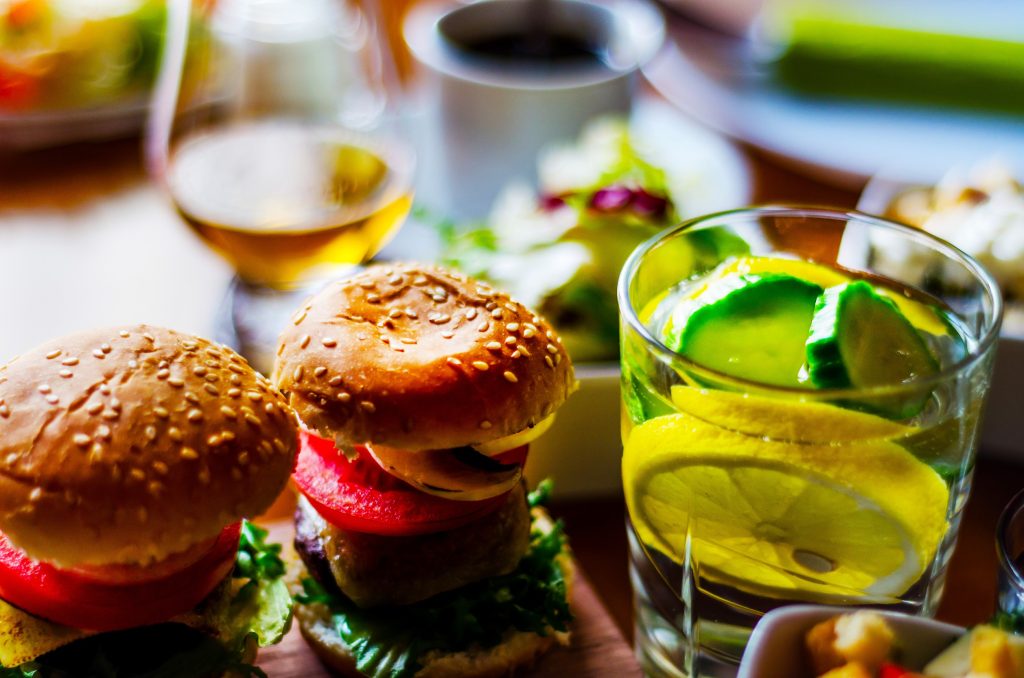The Relationship Between Overeating and Substance Use Disorders

Overeating is not usually considered a Substance Use Disorder (SUD), however recent research shows that compulsive overeating degrades neural pathways in a manner very similar to substance abuse.
A timely manuscript from two doctors at the Icahn School of Medicine at Mount Sinai looks into the connections between overeating and SUDs and finds:
Palatable food and drugs of abuse act on many of the same motivation-related circuits in the brain, and can induce, at least superficially, similar molecular, cellular, and physiological adaptations on these circuits.
On the surface, what links overeating and SUDs is engaging in self-destructive activities despite knowing they are harmful and wanting to stop. In this sense, food is just another substance that can be abused. The paper from Mount Sinai hedges on this comparison, noting that it is certain hyper-palatable foods that show addictive properties. The authors write,
It has been hypothesized that overconsumption of palatable energy dense food can elicit SUD-like maladaptive behaviors that contribute to persistent caloric intake beyond homeostatic need even in the face of negative consequences.
The mechanism through which consumption becomes addiction is speculated to be damage to the brain’s reward system. “Dopaminergic neurons in midbrain regions that signal positive outcomes are engaged when palatable food is consumed,” the authors note. The similarity between the way compulsive eating and SUDs impact the brain’s reward systems is noted by the authors of an article in the scientific journal, Current Addiction Reports:
Emerging evidence supports that dysregulation of brain reward pathways may underlie certain forms of obesity, particularly when driven by compulsive eating behavior or binge eating disorder/food addiction, and the evidence for comparable dysregulation underlying substance use disorders (SUD) and other addictive behavior is quite robust, with a high degree of overlap in brain circuitry driving excessive eating and drug addiction.
The connection between SUDs and binge eating disorder (BED) was explored in-depth a decade ago by an international team of researchers who analyzed 70 scientific journal papers on the subject and published the results in the Journal of Behavioral Addictions. Concerning the role of reward pathways, the authors note:
Both BED and SUD have been associated with reduced activity in the orbito-frontal and prefrontal cortex areas, which are associated with self-control, as well as dysfunctional [dopaminergic] and opioid pathways.
One of the more frustrating aspects of the research between eating disorders and substance abuse is the sheer lack of information on how foods impact the brain. Quite a bit of mapping exists for how alcohol and opioids act on the brain, but almost nothing about how sugar, salt, fats, and carbohydrates impact brain reward systems.
It appears that food processors know a great deal about how ingredients act on the brain, but that information is not shared with the medical community or the public. In a scathing rebuke to the food processing industry, Robert H. Lustig, a University of California pediatrician with the Institute for Health Policy Studies at UCSF, concluded that…
[…] ultraprocessed food is addictive because of the sugar that is added to it, and that the food industry specifically adds sugar because of its addictive properties.
AddictionNews continues to examine the many ways that both behavioral addictions and substance addictions overlap. A great deal of research has been initiated, for example, on how GLP-1 drugs such as Ozempic seem to be effective at reducing overeating as well as overconsumption of alcohol and even shopping addiction. More research needs to be done into the connections between co-occurring dependencies.
Written by Steve O’Keefe. First published December 28, 2023.
Sources:
“Utility of ‘substance use disorder’ as a heuristic for understanding overeating and obesity,” Progress in Neuro-Psychopharmacology & Biological Psychiatry, August 2022.
“Overeating, Overweight, and Substance Use: What Is the Connection?” Current Addiction Reports, April 2018.
“The overlap between binge eating disorder and substance use disorders: Diagnosis and neurobiology,” Journal of Behavioral Addictions, October 2013.
“Ultraprocessed Food: Addictive, Toxic, and Ready for Regulation,” Nutrients, November 2020.
Image Copyright: q77photo.




